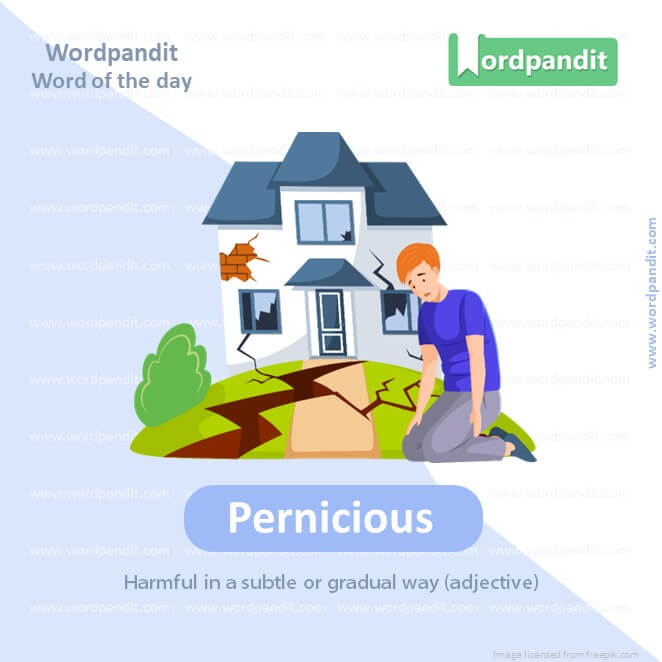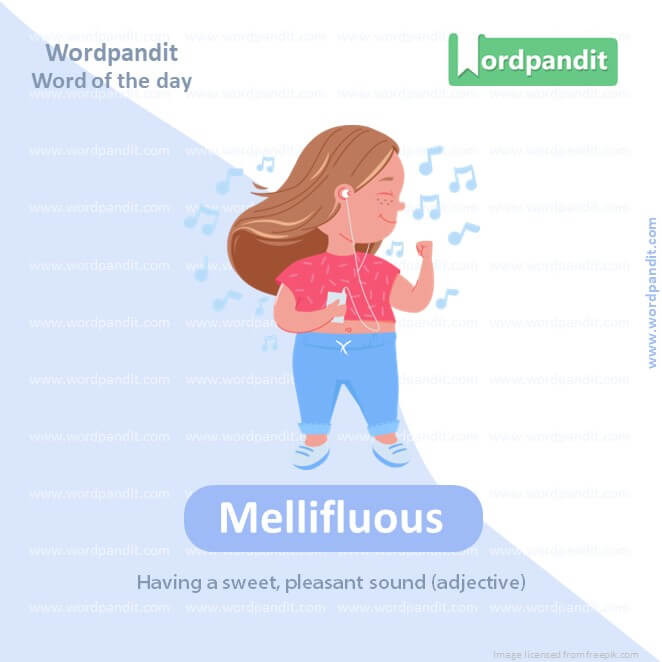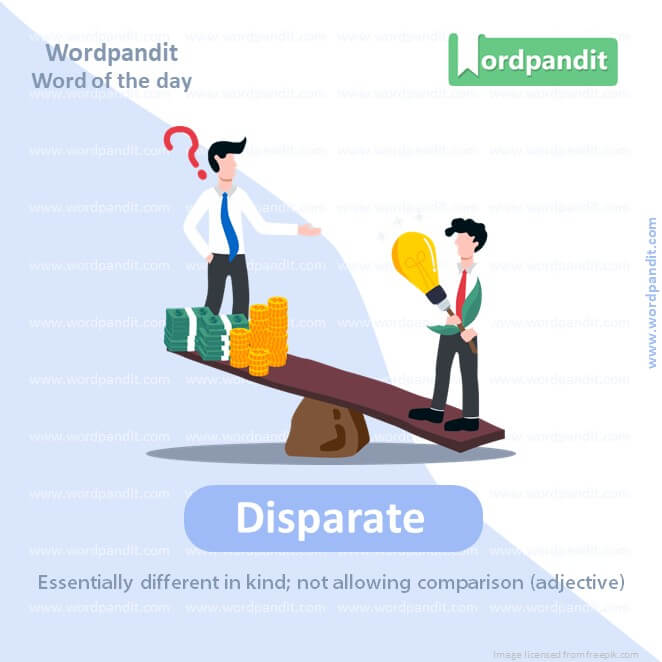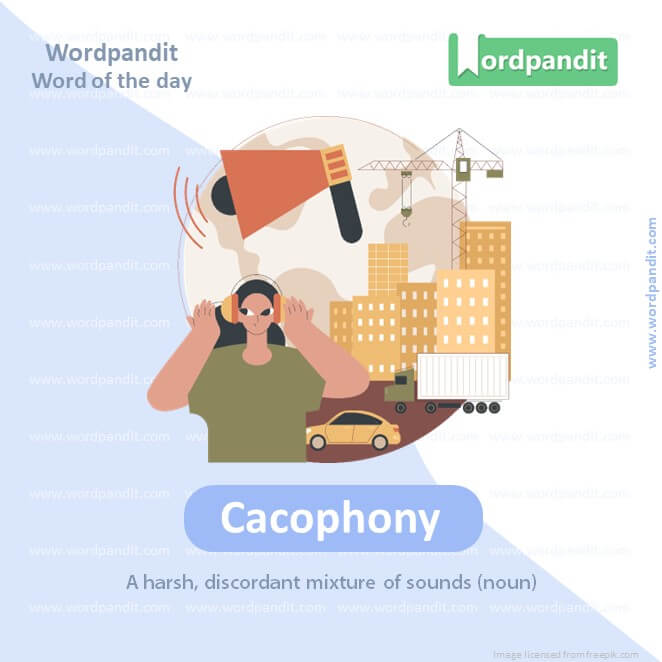Daily Vocabulary Words: List of Daily Used Words in Leading Indian Newspapers
Hi there. Welcome to this special section @ Wordpandit. Our endeavour here is straightforward: highlighting daily vocabulary words that you would come across in leading newspapers in the country. We have included the following newspapers in our selection:
• The Times of India
• The Economic Times
• Hindustan Times
• Mint
• Indian Express
We are putting in extensive work to develop your vocabulary. All you have to do is be regular with this section and check out this post daily. This is your repository of commonly used words; essentially, we are posting a list of daily used words. Hence, this has significant practical application as it teaches you words that are commonly used in leading publications mentioned above.
Visit the website daily to learn words from leading Indian newspapers.

WORD-1: Pernicious
CONTEXT: the pernicious effects of air pollution on public health, urging immediate government intervention.
SOURCE: Times of India
EXPLANATORY PARAGRAPH: Imagine you have a toy that looks pretty but slowly breaks all your other toys when you’re not looking. That’s like something being “pernicious”. It means something is harmful, but it might not look that way at first.
MEANING: Harmful in a subtle or gradual way (adjective).
PRONUNCIATION: per-NISH-us
SYNONYMS: harmful, damaging, dangerous, deadly, maleficent
USAGE EXAMPLES:
1. Eating too much candy can be pernicious to your teeth.
2. Some bugs have a pernicious effect on plants.
3. Lies can have a pernicious influence on one’s trust.
4. Leaving the bike in the rain had a pernicious effect on its chain.

WORD-2: Sycophant
CONTEXT: political sycophants, stating that their flattery was undermining democratic values.
SOURCE: Hindustan Times
EXPLANATORY PARAGRAPH: Imagine a friend who always says nice things to you, but only because they want you to share your snacks with them. That’s what we call a “sycophant”. Someone who flatters or praises others just to get something in return.
MEANING: A person who acts overly nice to someone in order to gain something (noun).
PRONUNCIATION: SICK-o-fant
SYNONYMS: flatterer, brown-noser, bootlicker, toady, yes-man
USAGE EXAMPLES:
1. Tommy acted like a sycophant whenever he wanted extra cookies.
2. She could tell he was a sycophant by the way he always agreed with the boss.
3. Being a sycophant won’t earn you true friends.
4. Teachers can usually spot a sycophant in the classroom.

WORD-3: Mellifluous
CONTEXT: a classical music concert, describing the lead singer’s voice as mellifluous and enchanting.
SOURCE: Times of India
EXPLANATORY PARAGRAPH: Think of your favorite lullaby or a beautiful bird singing. If it sounds really sweet and pleasant to your ears, then that sound is “mellifluous”.
MEANING: Having a sweet, pleasant sound (adjective).
PRONUNCIATION: mel-LIF-loo-us
SYNONYMS: melodic, sweet-sounding, tuneful, musical, dulcet
USAGE EXAMPLES:
1. The singer had a mellifluous voice that everyone loved.
2. The sound of the river was mellifluous to the camper’s ears.
3. She played the flute in a mellifluous manner.
4. The mellifluous song of the nightingale is often mentioned in poems.

WORD-4: Disparate
CONTEXT: the disparate economic recovery rates of various states post-lockdown, emphasizing the need for tailored strategies.
SOURCE: Indian Express
EXPLANATORY PARAGRAPH: Imagine having a basket of apples and another of oranges. They are both fruits but they are different, right? When two things are really different from each other, we say they are “disparate”.
MEANING: Essentially different in kind; not allowing comparison (adjective).
PRONUNCIATION: DIS-puh-rate
SYNONYMS: distinct, contrasting, different, dissimilar, diverse
USAGE EXAMPLES:
1. The twins had disparate interests: one loved music and the other loved sports.
2. Despite being in the same category, the two books had disparate themes.
3. The museum displayed artifacts from disparate cultures.
4. Their opinions on the matter were disparate, leading to a heated debate.

WORD-5: Cacophony
CONTEXT: the cacophony of the bustling city streets returning to life as lockdown measures were eased.
SOURCE: Hindustan Times
EXPLANATORY PARAGRAPH: Imagine a room where everyone is talking loudly, a dog is barking, and pots and pans are clanging. All these loud and jarring noises together make a “cacophony”. It’s like a noise salad!
MEANING: A harsh, discordant mixture of sounds (noun).
PRONUNCIATION: ka-KOFF-o-nee
SYNONYMS: din, racket, noise, discord, dissonance
USAGE EXAMPLES:
1. The city street was filled with the cacophony of honking horns and shouting vendors.
2. The classroom was in a cacophony before the teacher arrived.
3. Birds created a morning cacophony in the forest.
4. The band’s first practice was more cacophony than concert.
WORD-6: Quixotic
CONTEXT: the new policy proposals, while well-intentioned, were quixotic and unlikely to bring about significant change.
SOURCE: Times of India
EXPLANATORY PARAGRAPH: Have you ever dreamt of doing something really big and brave, even if it seems impossible? Like maybe flying to the moon with paper wings! When someone tries to do something brave and dreamy like that, but it’s very unlikely to happen, we call it “quixotic”.
MEANING: Extremely idealistic, unrealistic, or impractical (adjective).
PRONUNCIATION: kwik-SOT-ic
SYNONYMS: dreamy, romantic, unrealistic, impractical, utopian
USAGE EXAMPLES:
1. His plan to build a castle from ice-cream was quixotic.
2. Some people called the inventor’s ideas quixotic, but she believed in them.
3. Wanting to sail the desert was a quixotic idea.
4. The knight’s quixotic quest involved searching for a dragon in a world where dragons didn’t exist.
WORD-7: Serendipity
CONTEXT: a heartwarming story of serendipity, where a lost valuable was unexpectedly found thanks to the kindness of a stranger.
SOURCE: Indian Express
EXPLANATORY PARAGRAPH: Imagine finding a dollar on the ground just when you needed it to buy a toy. That’s a happy accident! “Serendipity” is like a pleasant surprise that happens by chance.
MEANING: The occurrence of events by chance in a happy or beneficial way (noun).
PRONUNCIATION: ser-en-DIP-it-ee
SYNONYMS: luck, fortuity, chance, happy accident, fluke
USAGE EXAMPLES:
1. Finding her lost ring on the beach was pure serendipity.
2. Their unexpected meeting turned into a serendipity when they realized they had a lot in common.
3. The invention of penicillin was a result of serendipity.
4. The best adventures are often born from serendipity.
WORD-8: Labyrinthine
CONTEXT: the bureaucratic process for business startups as labyrinthine, calling for simplification and streamlining.
SOURCE: Times of India
EXPLANATORY PARAGRAPH: Think of a huge maze where you can easily get lost with lots of winding paths. If something is as confusing as this maze, we say it’s “labyrinthine”.
MEANING: Like a labyrinth; very complicated or intricate (adjective).
PRONUNCIATION: lab-uh-RIN-thine
SYNONYMS: complex, convoluted, tangled, intricate, perplexing
USAGE EXAMPLES:
1. The ancient castle had labyrinthine corridors that were easy to get lost in.
2. Her novel had a labyrinthine plot full of twists and turns.
3. The tax code is labyrinthine in its complexity.
4. Navigating the old town’s streets felt like a labyrinthine puzzle.
WORD-9: Ephemeral
CONTEXT: the ephemeral nature of internet trends, highlighting the fleeting fame of viral internet stars.
SOURCE: Hindustan Times
EXPLANATORY PARAGRAPH: Do you know how a rainbow appears after the rain but goes away quickly? Or how some flowers bloom in the morning but wilt by evening? These things don’t last very long. They are “ephemeral”, which means they are short-lived.
MEANING: Lasting for a very short time (adjective).
PRONUNCIATION: eh-FEM-er-al
SYNONYMS: fleeting, transitory, transient, short-lived, momentary
USAGE EXAMPLES:
1. The beauty of a shooting star is ephemeral, as it disappears quickly.
2. Childhood is an ephemeral period that passes swiftly.
3. The snow created an ephemeral winter wonderland that melted by noon.
4. The artist’s exhibition was ephemeral, lasting only a weekend.
WORD-10: Disastrous
CONTEXT: disastrous outcomes because the ecosystem of law as it exists
SOURCE: Indian Express
EXPLANATORY PARAGRAPH: Imagine baking a cake and it turns into a big mess because you forgot the sugar or it burned. That’s a disaster! “Disastrous” means something went really wrong and had a very bad result.
MEANING: Causing great harm or damage (adjective).
PRONUNCIATION: dih-ZAS-trous
SYNONYMS: calamitous, catastrophic, ruinous, detrimental, damaging
USAGE EXAMPLES:
1. The storm had a disastrous impact on the coastal village.
2. Forgetting to study for the test had disastrous results for Tom.
3. The camping trip turned disastrous when they realized they forgot the tent.
4. Mixing those chemicals can have disastrous consequences.
vocabulary 10 words
Expanding your lexicon but don’t know where to start? There’s an efficient approach that may just be the solution you’ve been seeking: focusing on vocabulary 10 words at a time. This method is known for its simplicity and efficacy, giving learners manageable and meaningful chunks of new knowledge to digest.
Let us delve into how to adapt the ‘vocabulary 10 words’ approach to your language learning routine. This strategy is quite straightforward: instead of attempting to learn dozens of words all at once, break your learning down into smaller steps. Take sets of vocabulary 10 words at a time. This not only makes the process less daunting but also allows for more focus and better retention.
Make your ‘vocabulary 10 words’ as diverse as possible. In these sets, include nouns, verbs, adjectives, and adverbs from different contexts. Creating variety within your selected vocabulary 10 words guarantees exposure to a range of language nuances while promoting a balanced growth of your verbal arsenal.
Afterward, engage with your chosen ‘vocabulary 10 words’ in different ways. Use them in written sentences, practice their pronunciation, or play word games. Interacting with these words in various forms reinforces their meaning and usage, ensuring that they stick in your memory.
At the end of each week, review your vocabulary 10 words. Recollection is vital in language acquisition, and revisiting these words will help cement them in your mind. Make this a regular practice for long-term retention and recall.
In conclusion, the ‘vocabulary 10 words’ tactic is not just about learning new terms. It boasts a targeted, balanced, and powerful approach to broadening one’s vocabulary. Not to mention, it fosters a manageable and enjoyable routine for learners of any language. Adopt the ‘vocabulary 10 words’ method and witness a considerable difference in your language proficiency.













